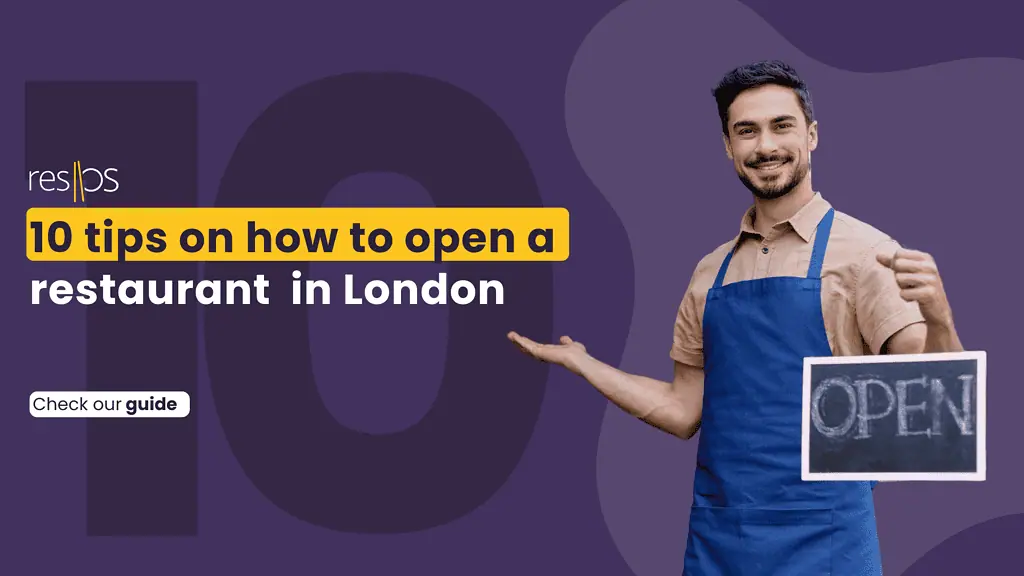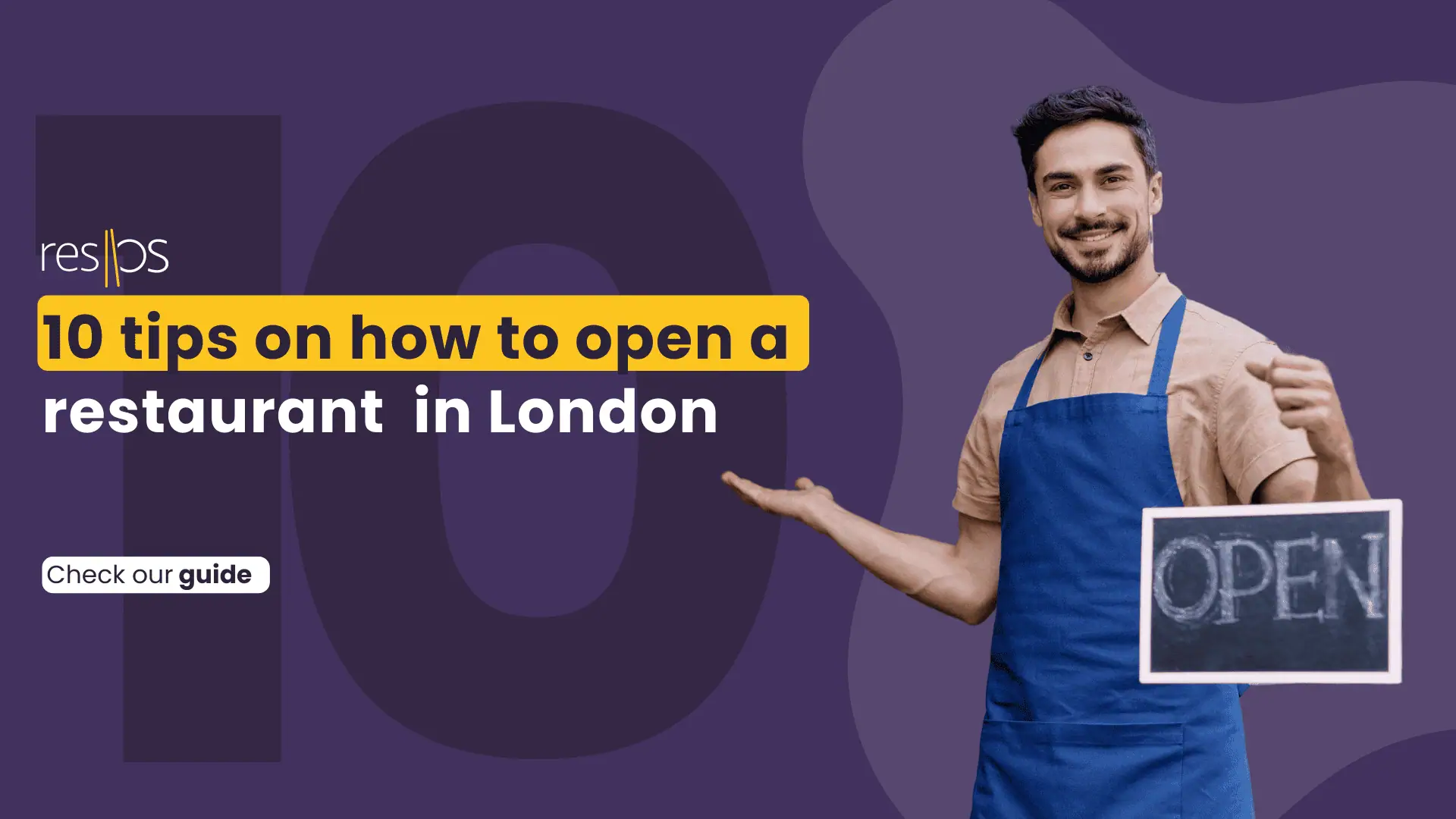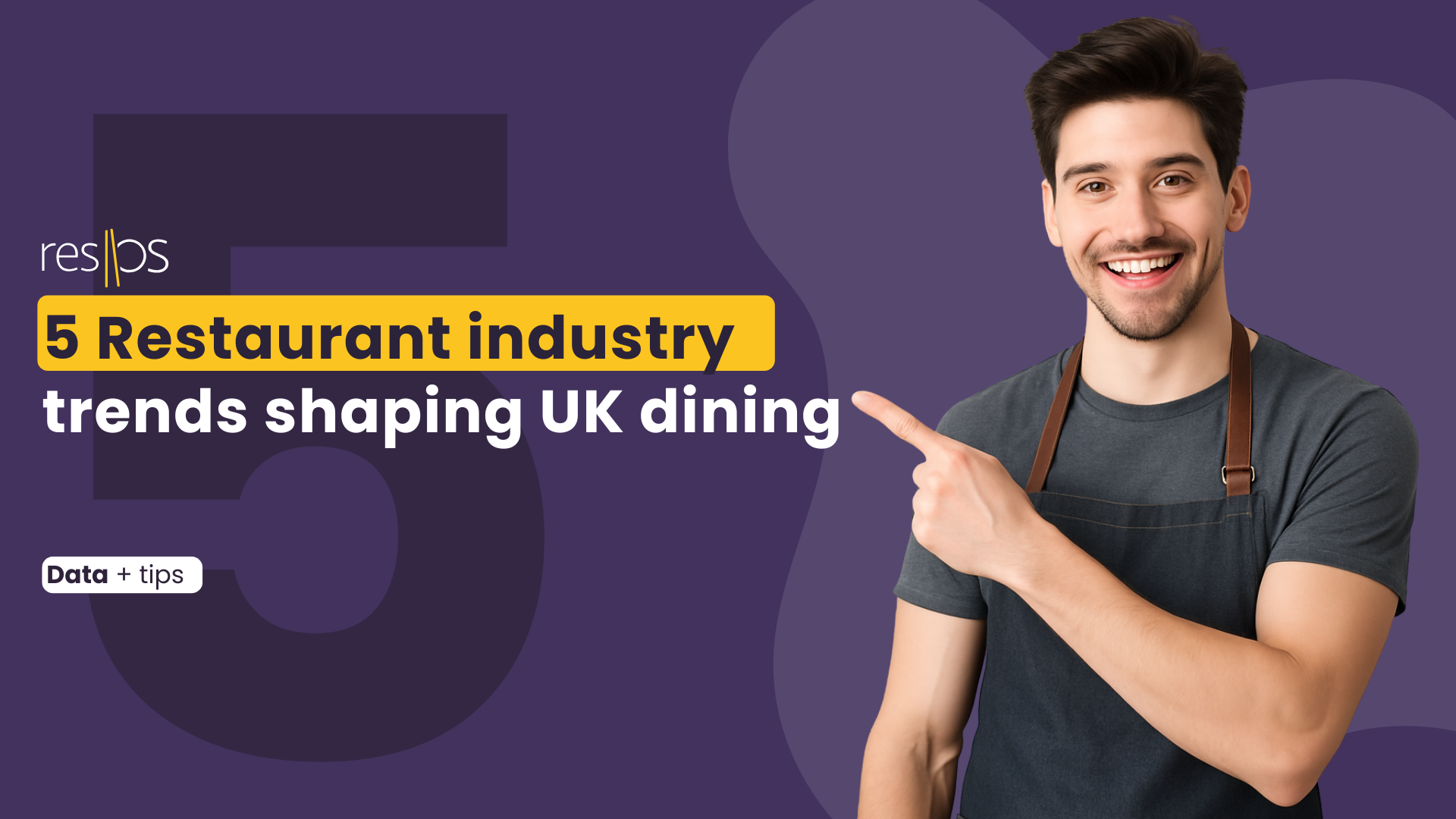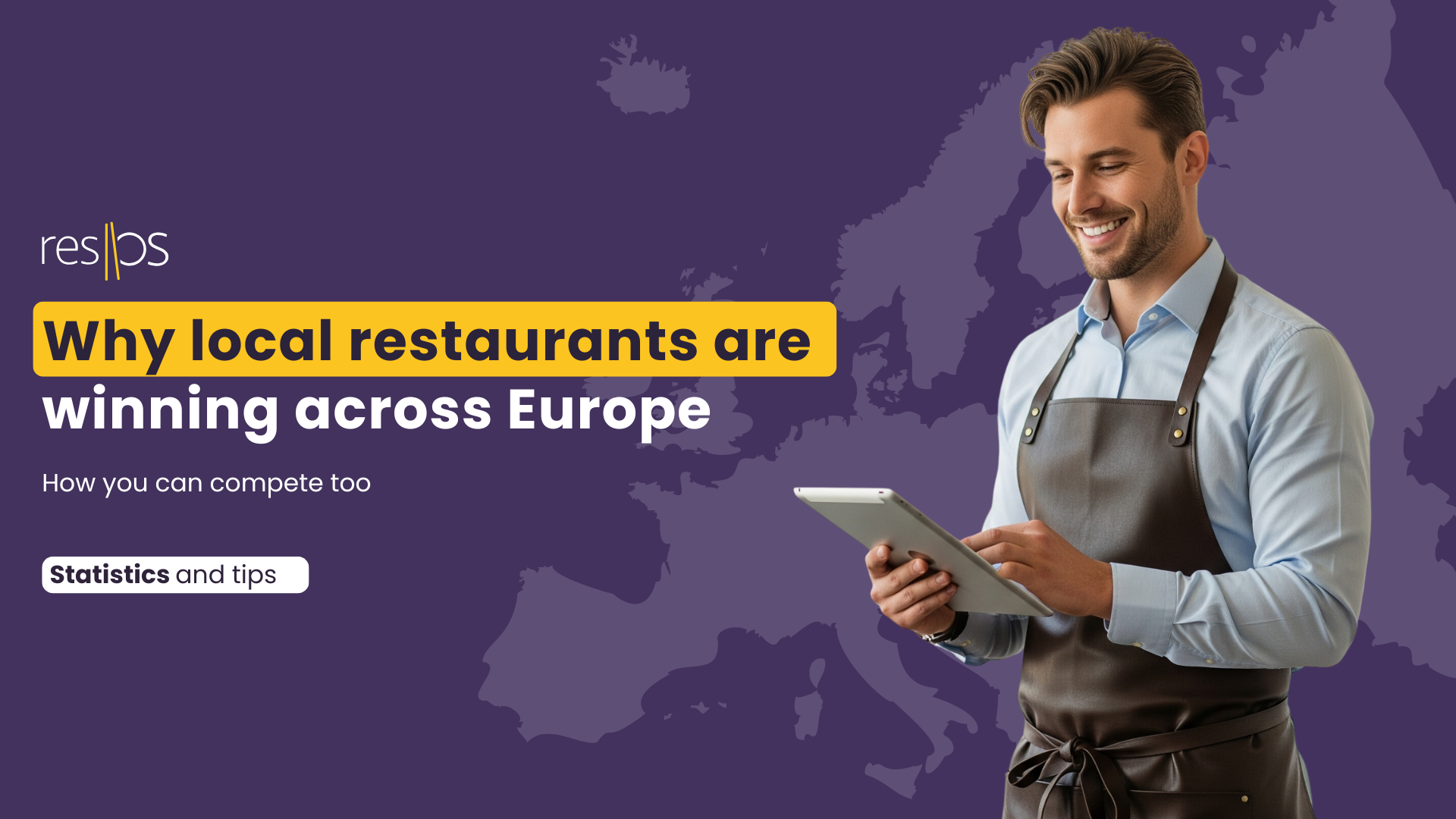Running a restaurant in London is both an exciting and challenging venture. With rising costs, shifting customer habits, and evolving industry standards, restaurateurs need to stay informed and adaptable.
This blog explores the realities of the London restaurant scene in 2024 and offers practical tips for staying competitive.

Opening a restaurant in London is an exciting but challenging venture. The city’s vibrant food scene offers immense opportunities, but it’s also one of the most competitive markets in the world.
Whether you’re dreaming of opening a cosy café in Notting Hill or a chic eatery in Shoreditch, this guide will walk you through the essential steps to help you navigate the path to success. Let’s dive in!
Agenda 📋
Before we dive into the details, here’s a quick overview of what we’ll cover in this article:
- Understanding the market
- Location
- Business plan
- Legal requirements
- Design
- Developing a profitable menu
- Building a stellar team
- Marketing and branding
- Improvement and adaptation
- Additional considerations
Let’s break these down in more detail!
1. Understand the market: research is key 🔍
London’s restaurant scene is both vast and diverse, with over 18,000 restaurants as of 2024, reflecting the city’s rich culinary landscape.
The UK’s full-service restaurant industry is substantial, with a market size of approximately £23.9 billion in 2024.
However, independent restaurants face significant challenges, operating with slim profit margins averaging 6-8%.
These figures highlight the competitive and demanding environment of London’s restaurant industry, where maintaining profitability requires strategic planning and adaptability.
Before you get started on your restaurant journey, it’s necessary to understand the market. London’s dining trends are ever-evolving, with a huge shift towards vegan, sustainable, and unique dining experiences.
Conduct thorough market research to identify what’s trending and what gaps exist in the market. For example, there has been a rising demand for plant-based menus and immersive dining experiences.
💡Pro tip: Analyse your competitors to see what they’re doing right—and wrong. Visit similar restaurants, study their menus, pricing, and customer reviews. This insight will help you shape your concept and strategy.
2. Location 🗺️
Choosing the right location in London can make or break your restaurant. While iconic spots like Soho and Covent Garden are prime choices, they come with hefty rents. However, emerging areas like Camden and Hackney offer lower rents while attracting a trendy crowd.
💡Pro tip: Look for locations with high foot traffic and easy access to public transport. Being near offices can be a goldmine if you’re targeting the lunch crowd. Always weigh the pros and cons of rent costs versus potential customer flow.
3. Develop a business plan 📈
A well-thought-out restaurant business plan is your roadmap to success. This document should outline your restaurant’s concept, target market, competitive analysis, marketing strategies, and financial projections.
Not only will it guide your operations, but it’s also essential if you’re seeking funding from investors.
👉 Want to get to know more about how to craft restaurant business plan? Check this out.
Key elements of a business plan:
🟣 Restaurant concept: What makes your restaurant unique? Define your theme, cuisine, and overall vibe.
🟣 Market analysis: Who are your customers? What are the local dining trends?
🟣 Financial plan: Detail your startup costs, projected income, and break-even analysis.
4. Consider legal requirements 📝
London’s restaurant industry is heavily regulated, so it’s crucial to get all your legal ducks in a row. This includes registering your business with Companies House, securing necessary licences (like food safety and alcohol licenses), and ensuring strict adherence to health and safety regulations.
Must-have licences:
✔️ Alcohol licensing (if applicable)
✔️ Music licence (PRS)
5. Design an inviting space 🎨
Your restaurant’s ambiance is just as important as the food you serve. The design should reflect your brand and resonate with your target audience. Whether you’re going for a minimalist, modern look or a cosy, rustic vibe, the decor should create a memorable dining experience.
💡Pro tip: Consider unique elements like open kitchens, creative lighting, or themed decor that can become Instagram-worthy features, attracting a social media-savvy crowd.
6. Develop a delicious and profitable menu 🍲
Your menu is the heart of your restaurant. It should showcase your culinary expertise while catering to the tastes of your target market. Balance creativity with cost-effectiveness—your dishes should be delicious and profitable.
Menu tips:
✔️ Seasonal ingredients: Use fresh, seasonal ingredients to keep your menu dynamic.
✔️ Pricing strategy: Ensure your prices reflect the quality and cost of ingredients without alienating your target customers.
✔️ Allergen information: Make sure your menu includes clear allergen information.
7. Build a strong team 👨🍳
Your staff is the core of your restaurant. Hire individuals who are not only skilled, but also align with your restaurant’s culture. Regular training is essential to maintain high service standards and kitchen efficiency.
💡Pro tip: In London’s competitive market, offering competitive salaries, benefits, and a positive work environment can help retain top talent.
8. Master marketing and branding 📢
In a city as vibrant as London, standing out requires a strong marketing strategy. Leverage digital marketing tools like social media, email campaigns, and a well-designed website to build your brand. Don’t forget traditional methods like local partnerships and community events.
Marketing musts:
✔️ Social media presence: Engage with your audience on platforms like Instagram and Facebook 👉 Read more about Social Media presence here.
✔️ Email marketing: Keep your customers in the loop with special offers and updates 👉 Read more about Email Marketing here.
✔️ Community engagement: Host events or participate in local festivals to increase visibility.
✔️ Booking system: make sure that you have right technology that will satisfy your needs with affordable price.
Managing reservations has never been easier. resOS is the restaurant booking system designed with simplicity and affordability in mind, making it the ideal choice for new restaurants.

Start your restaurant journey with resOS
Affordable, intuitive, and perfect for startups—Plus, try our free version!

9. Continuously improve and adapt
The restaurant industry is dynamic, and staying ahead requires constant evaluation and adaptation. Regularly review your business plan, menu, and customer feedback to make necessary improvements.
💡Pro tip: Use customer reviews and feedback as a tool for growth. Listen to what your customers want and adapt accordingly.
👇 Check what others say about resOS 👇
10. Additional considerations 🔧
As you move forward, consider these additional aspects:
✔️ Select the right equipment: Invest in high-quality kitchen equipment and reliable suppliers. If you’re on a budget, consider second-hand equipment but ensure it’s in good condition.
✔️ Develop a strong concept: Your restaurant’s concept should be clear and consistent across all aspects, from the menu to the decor to the marketing.
✔️ Financial planning: Continuous budgeting and financial forecasting are crucial to keep your restaurant financially healthy and to make informed decisions about growth and expansion.
❓ How much does it cost to set up a restaurant in London?
Opening a restaurant in London is an exciting venture, but it comes with a significant price tag. On average, you can expect to invest anywhere from £250,000 to £1 million to get your dream restaurant off the ground.
This range covers everything from securing a prime location, which could be in bustling Soho or trendy Shoreditch, to transforming the space with renovations, purchasing top-notch kitchen equipment, and covering essential costs like licences and staffing.
The final figure largely depends on the scale and style of your restaurant—whether you’re aiming for a cosy local spot or a high-end dining experience. And remember, beyond just the initial setup, you’ll need to budget for ongoing operational costs to keep the business thriving.
Conclusion: your culinary journey begins now! 🍴
Starting a restaurant in London is no small feat, but with the right planning, creativity, and perseverance, you can carve out a successful niche in this bustling city. Remember, every successful restaurant started as a dream—now it’s your turn to make that dream a reality.
Good luck!



